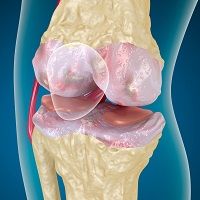Hospital-Acquired Conditions Frequently Responsible for Hospital Readmissions Following Arthroplasty
Joint arthroplasties, which are becoming quite common as the Baby Boomers age, improve function and relieves pain for most patients. Total knee arthroplasty is expected to grow by nearly 700% in the next few years and primary total hip arthroplasty will increase by nearly 200%.

Joint arthroplasties, which are becoming quite common as the Baby Boomers age, improve function and relieves pain for most patients. Total knee arthroplasty (TKA) is expected to grow by nearly 700% in the next few years and primary total hip arthroplasty (THA) will increase by nearly 200%. Medicare reports that knee and hip arthroplasties are the biggest combined surgical costs among its beneficiaries with 2015 expenditures expected to be $40.8 billion and $17.4 billion, respectively.
Researchers from Alabama and Missouri have published a study in the Journal of Arthroplasty that indicates that hospital-acquired conditions (HACs) are the strongest predictor of complications and readmission.
The researchers hunted for variables associated with early readmission following knee and hip arthroplasty using data from retrospective cohort analysis. They used 2 databases: the Surgical Care Improvement Project (SCIP) and Veteran's Affairs Surgical Quality Improvement Program (VASQIP). Their research covered a 5-year period and included 26,710 total and partial primary arthroplasties (16,808 knees and 9902 hips).
More than 12% of patient developed complications.
A full 42% of all readmissions for complications were attributed to HACs, and HACs were the strongest predictor of readmission. The most common HACs were surgical site infection, venous thromboembolism, pneumonia, and urinary tract infection. Patient factors linked to HACs included increasing age, alcohol use, higher BMI, diabetes, steroid use, COPD, CHF, advanced ASA class, and hip arthroplasty.
In total, the 30-day readmission was 7.3%. Patients who underwent hip arthroplasty were more likely to be readmitted than those who had knee arthroplasty, with readmission rates of 8.4% and 6.6% respectively. These statistics are congruent with other reports from hospitals across the nation.
In 2014, the US Department of Health and Human Services reported patient harms had fallen 9% and Medicare 30-day readmissions had fallen 8% compared to the 2010 baseline. The result is impressive: 150,000 fewer readmissions over two years, 15,000 fewer deaths, and a savings of $4.1 billion. The researchers pointed out that addressing HACs can have escalating benefit.